ReWire
Technology-driven combinatorial therapy to rewire the spinal cord after injury
The European Doctoral Network ReWire started with 16 open PhD positions around Europe (10), the UK (2), and Switzerland (4) to combine innovative translational neurotechnologies and rehabilitation interventions for the repair and restoration of neurological functions following spinal cord injury with G. Courtine, Stephanie Lacour, Jocelyn Bloch, Armin Curt, Catherine Jutzeler, Elizabeth Bradbury, Simone Di Giovanni, Patricia Y.W. Dankers, Hoc Khiem Trieu, Silvestro Micera, ONWARD, Fonds de dotation Clinatec, Wearable Robotics, Biosynth, Veronica Estrada, Jose Luis Gerardo Nava and Laura De Laporte.
ReWIRE Doctoral Candidates
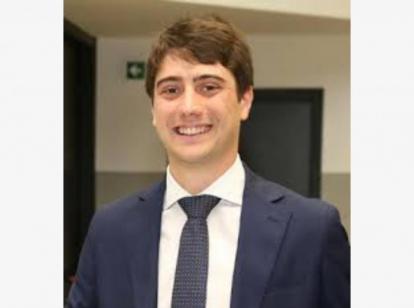
MSCA-funded fellow
Carlo Carraro
Carlo Carraro is from Italy and recently completed his Master’s degree in Bioengineering at Politecnico di Milano, where he specialized in electronics and wearable device technologies. Currently, he is pursuing a PhD under theguidance of Prof. Dr.-Ing. Vallery Heike (Instituteof Automatic Control, RWTH Aachen University) and Dr. Joachim von Zitzewitz (ONWARD Medical). His research focuses on developing personalized orthosis and sensor/control platforms for movement intention recognition, both with the goal to improve EES-supported (Epidural Electrical Stimulation) locomotion for people with spinal cord injury.
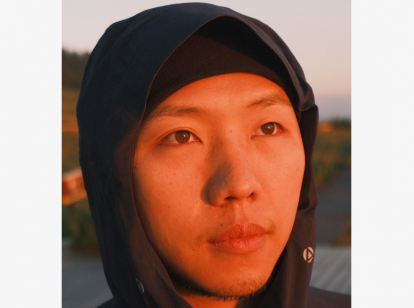
MSCA-funded fellow
Rui Chen
Rui Chen was born in China and obtained his MSc degree from Tsinghua University in Mechanical Engineering, and another MSc degree from RWTH Aachen University in Product System Engineering. He began working as a PhD student at Wearable Robotics in Italy under the supervision of Professor Antonio Frisoli. His work will focus on the development of a robotic soft exoskeleton for gross manipulation restoration after spinal cord injury.

UKRI-funded fellow
Simay Genişcan
Simay Genişcan is from Turkey, Izmir, and completed her Master’s degree in Neuroscience in Ajou University, South Korea. She is workingin the lab of Prof. Elizabeth Bradbury at King’s College. With a focus in spinal cord repair, she has been utilizing different approaches to regenerate damaged spinal cord, including cell and organoid transplantation, biomaterial injection, and modulation of inhibitory spinal cord ECM environment with therapeutic drugs. Her thesis project is on an in vitro scar model with primary fibroblasts and astrocytes and screened drugs that can modulate fibrosis.
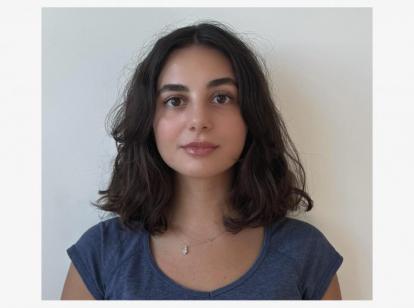
MSCA-funded fellow
Paula Holban
Paula Holban was born in Moldova and studied Chemistry of Complex Systems in Strasbourg, France. During her Master’s, she contributed to several research projects ranging from biochemistry to photochemistry. In October, she started her PhD journey in Biomedical Engineering at the University of Technology in Eindhoven (TU/e), under the guidance of Prof. Patricia Dankers. She will focus on developing injectable supramolecular biomaterials to promote axonal growth following spinal cord injury.
MSCA-funded fellow
Alessandro Ippoliti
Alessandro Ippoliti was born in Milan and studied at the Politecnico di Milano where he obtained a Bachelor’s degree in Engineering Physics and a Master’s in Biomedical Engineering. His thesis was conducted at the “Institut de Ciències Fotòniques”(ICFO) in Barcellona under Dr. Turgut Durduran. In May, he began in the ReWIRE program at TUHH under the supervision of Prof. Kim Trieu, with a focus on looking to build fully biocompatible and biodegradable spinal implants out of hydrogels through a stereolithographic technique called “two photon polymerization” (2PP). This is done with the scope of promoting spinal cord regeneration after traumatic injuries.

MSCA-funded fellow
Maria Justino
Maria Justino is a PhD student at Clinatec and the main objectives of her program are to establish novel algorithms of intended movement decoding from epidural cortical (brain) recording to provide corresponding stimulation patterns to central or periphery nervous system aiming at recovering motor control after spinal cord injury in humans. She looks forward to expanding her competencies in designing appropriate acquisition systems, acquiring and processing data, establishing new datasets, data imaging and visualization, and developing interpretable and accurate machine learning models.

SERI-funded fellow
Navami Prabhakar Koyande
Navami Prabhakar Koyande was born in Mumbai, India and obtained her MSc degree in Biotechnology from University of Mumbai. She will start working as a PhD student at Biosynth, Lelystad under the supervision of Prof. Dr. PeterTimmerman (Biosynth) and Prof. Dr.-Ing. Laura De Laporte (RWTH Aachen University). She will work on developing high-affinity CLIPSTM peptides that mimic functions of cell adhesive proteins, like laminins, to support in vitro and in vivo cell and nerve attachment and migration.
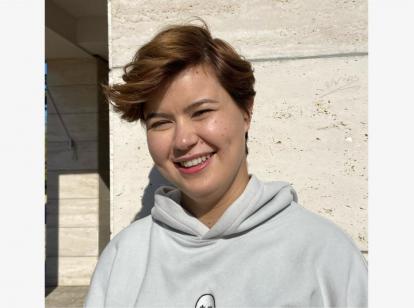
MSCA-funded fellow
Elif Önsöz
Elif Önsöz is from Turkey and received a Bachelor’s degree in Molecular Biology and Genetics. She obtained an MSc in Neurobiology at Unito and in Stem Cell and Regenerative Medicine at Mersin University. She will start at DWI in the De Laporte lab under the supervision of Dr. Veronica Estrada. Her PhD project will focus on the in vivo application of the Advanced Mechanical Microconnector System (mMS+) to improve the outcome of acute and chronic spinal cord injury.
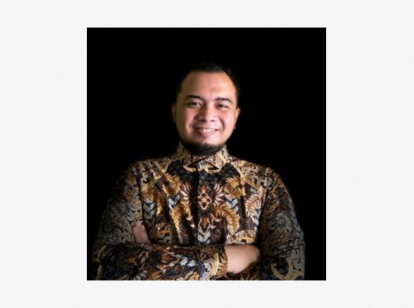
MSCA-funded fellow
Firman Isma Serdana
Firman Isma Serdana is a Biomedical Engineer with a passion for neuroengineering on the application of bio-signal processing and machine learning for system control. His research focus is on the utilization of hand and arm electromyography signals for robotics control and rehabilitation. A recent project used high-density EMG to reproduce discrete finger control (Serdana et al., 2022 & 2023) under the supervision of Prof. Dario Farina and Dr. Silvia Muceli. He graduated with a B.Eng. in Biomedical Engineering from Airlangga University and also received an MSc in Human and Biological Robotics at Imperial College London.

UKRI-funded fellow
Yayue Song
Yayue Song is from Beijing, China, and studied medicine in China. She completed her MSc degreein Translational Neuroscience at Imperial College London, under the guidance of Professor Simone Di Giovanni. Yayue is undertaking a PhD project at Imperial College London under the supervision of Professor Simone Di Giovanni, with a focus on investigating the molecular mechanisms that promote regeneration and repair following spinal cord injuries. Within the consortium, she aims to combine the molecular stimulation of neuronal regeneration with biomaterials or other combinatorial approaches to enhance the repair potential after spinal injury.

MSCA-funded fellow
Catarina Tavares
Catarina Tavares, from Portugal, obtained her MSc degree in Nanotechnology Engineering at the NOVA Faculty of Science and Technology. She is pursuing a PhD under the supervision of Prof. Dr.-Ing. Laura De Laporte at DWI (RWTH Aachen University), focusing on the microfluidic production of microgel capsules as drug delivery systems and the sustained release of growth factors to promote spinal cord regeneration after injury. Since starting in September, she has been conducting a literature review on sustained or stimuli-triggered drug delivery systems based on microgels and on the effects of local growth factor release for neural regeneration.
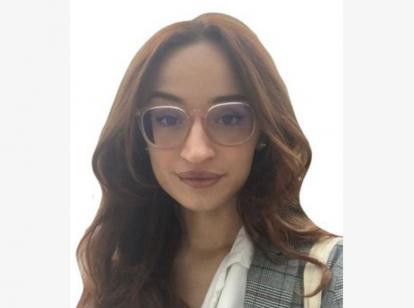
SERI-funded fellow
Miklovana Tuci
Miklovana Tuci was born in Albania and obtained her MSc in Machine Learning at KTH Royal Institute of Technology, Sweden. Her master’s thesis focused on Representation Learning and Manifold Learning. In June 2023, she joined the Biomedical Data Science Lab at ETH Zurich as a PhD student, under the supervision of Prof.Catherine Jutzeler, and will work at the Balgrist research campus, under the co-supervision of PD Dr. Marco Bolliger. She will focus on applying machine learning techniques to counsel preclinical research and to advance translational trial protocols in human spinal cord injury.
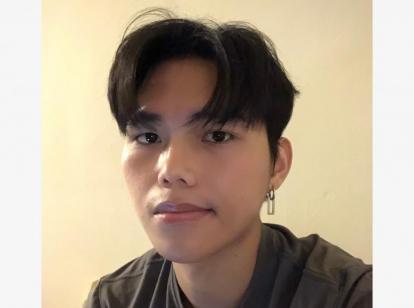
MSCA-funded fellow
Jace Vu
Jace Vu graduated with a BSc in Chemical Engineering at Miami University, USA, and an MSc in Bioengineering at the University of California, Los Angeles, USA. He will start his doctoral research in the Advanced Materials for Biomedicine research group led by Dr.-Ing. Laura De Laporte at the DWI Leibniz Institute for Interactive Materials. He will be working on developing and evaluating injectable, magneto-responsive, macroporous guiding scaffolds as therapy after acute SCI.
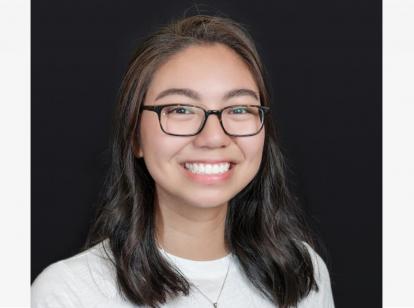
SERI-funded fellow
Bianca Yu
Bianca Yu, from the United States, recently completed her Master’s degree in Bioengineering at Stanford University, where she specialized in electromechanical engineering, robotics, and clinical technology. She is joining the NeuroRestore laboratory at Lausanne University Hospital (CHUV / Centre hospitalier universitaire vaudois) in Switzerland to begin her PhD in Neuroscience. Her research will focus on optimizing brain-controlled epidural electrical stimulation to restore movement and neurological function in patients with upper-limb paralysis caused by cervical spinal cord injury.

SERI-funded fellow
Scott Erickson
Scott Erickson ist Doktorand unter Prof. Stéphanie Lacour im Laboratory for Soft Bioelectronic Interfaces (LSBI) an der EPFL. Zuvor arbeitete er an der Entwicklung von in-vitro-Modellen der plazentaren und zerebralen Gefäßstrukturen. Derzeit beschäftigt er sich mit dem Design und der Herstellung von Mikroelektroden-Arrays zur Aufzeichnung elektrophysiologischer Aktivität in humanen Rückenmarksorganoiden, mit dem Ziel, ein in-vitro-Modell für Rückenmarksverletzungen zu entwickeln.

SERI-funded fellow
Vi Anh Nguyen
Vi Anh Nguyen wurde in Paris (Frankreich) geboren und erlangte ihren M.Sc.-Abschluss in Neurowissenschaften sowie in Bioengineering & Innovation in Neuroscience an der Université Paris Cité. Ihre akademische Laufbahn konzentriert sich auf den Einsatz neuroprothetischer Implantate zur funktionellen Wiederherstellung. Während ihrer bisherigen Forschungspraktika untersuchte sie die Funktionalität subretinaler Implantate zur Wiedererlangung des Sehvermögens nach Retinitis pigmentosa und altersbedingter Makuladegeneration. Anschließend schloss sich Vi Anh dem NeuroRestore-Labor an der EPFL unter der Betreuung von Professor Grégoire Courtine an. In ihrem Promotionsprojekt arbeitet sie daran, die Funktionen des unteren Harntrakts nach Rückenmarksverletzungen mithilfe epiduraler elektrischer Stimulation (EES) wiederherzustellen und die Mechanismen zu verstehen, über die EES die Kontrolle von Blase und Schließmuskel moduliert. Im Rahmen des ReWIRE-Netzwerks möchte Vi Anh dazu beitragen, neuromodulatorische Strategien zu entwickeln, die die Lebensqualität von Menschen mit Rückenmarksverletzungen nachhaltig verbessern.
Former Fellows

MSCA-funded fellow (30.01.-31.10.2023)
Tristan Tarasi
Tristan Tarasi kam im Rahmen des ReWIRE-Programms zu ONWARD. Die epidurale elektrische Stimulation (EES) ist eine vielversprechende Technik, um Bewegung und Funktion bei Menschen mit Rückenmarksverletzung (SCI) wiederherzustellen. Das Hauptziel seines Projekts bestand darin, Lösungen zu entwickeln, die die Rehabilitation mit EES verbessern. Seine Abschlussarbeit konzentrierte sich auf zwei Hauptbereiche: Erstens die Entwicklung von Sensoren und Echtzeit-Algorithmen zur Erkennung von Bewegungsabsichten in Kombination mit personalisierter EES. Zweitens die Untersuchung moderner Orthesen und ihres Potenzials, die Mobilität in Verbindung mit EES zu verbessern.
